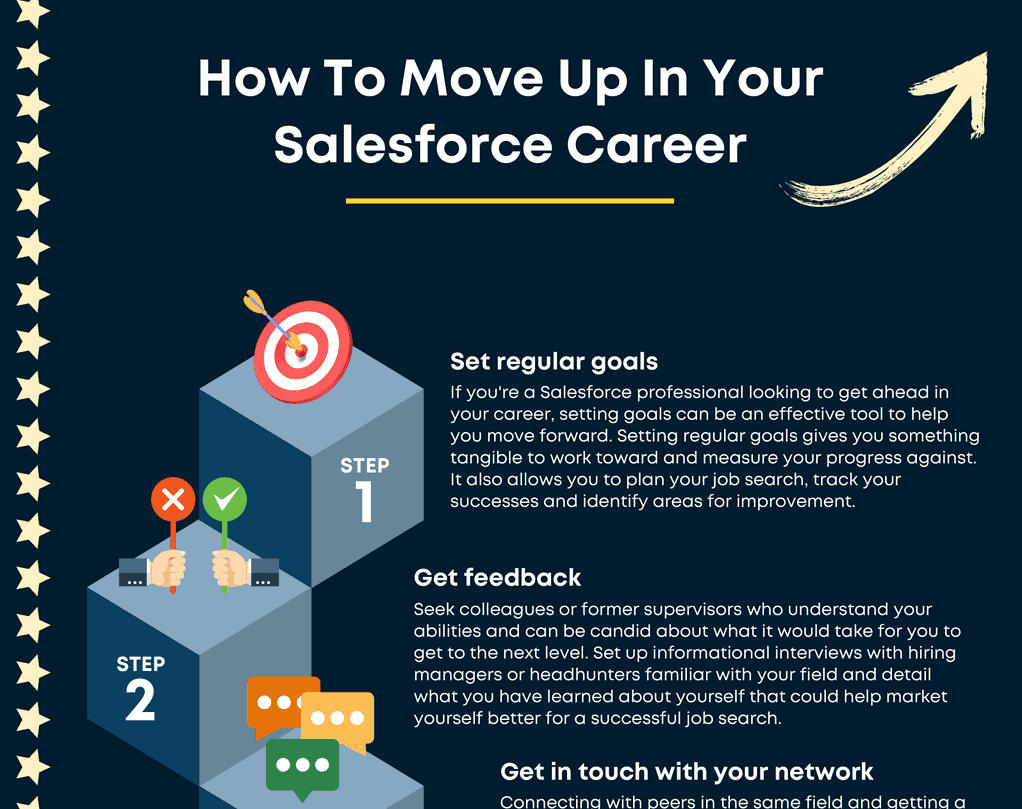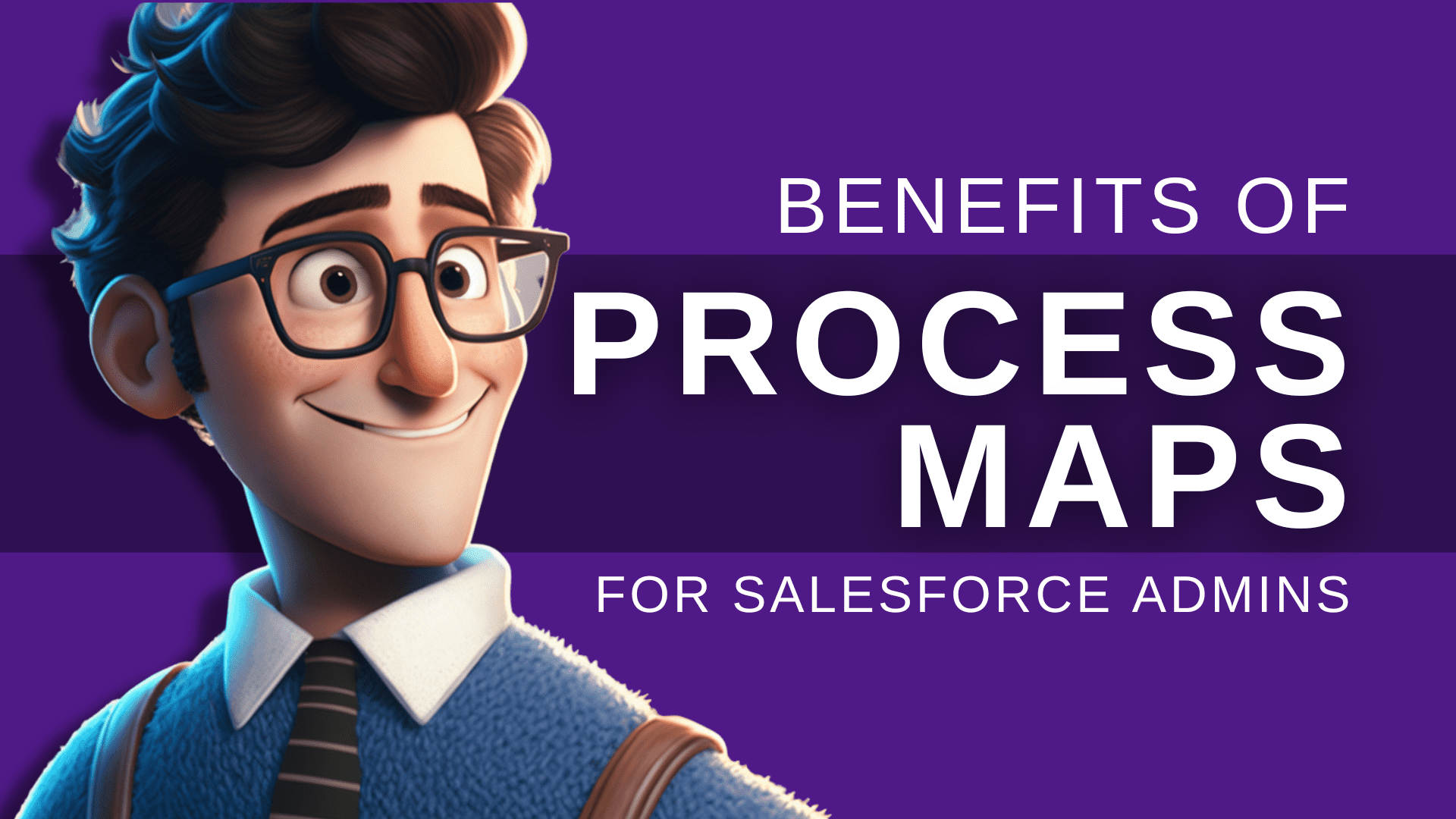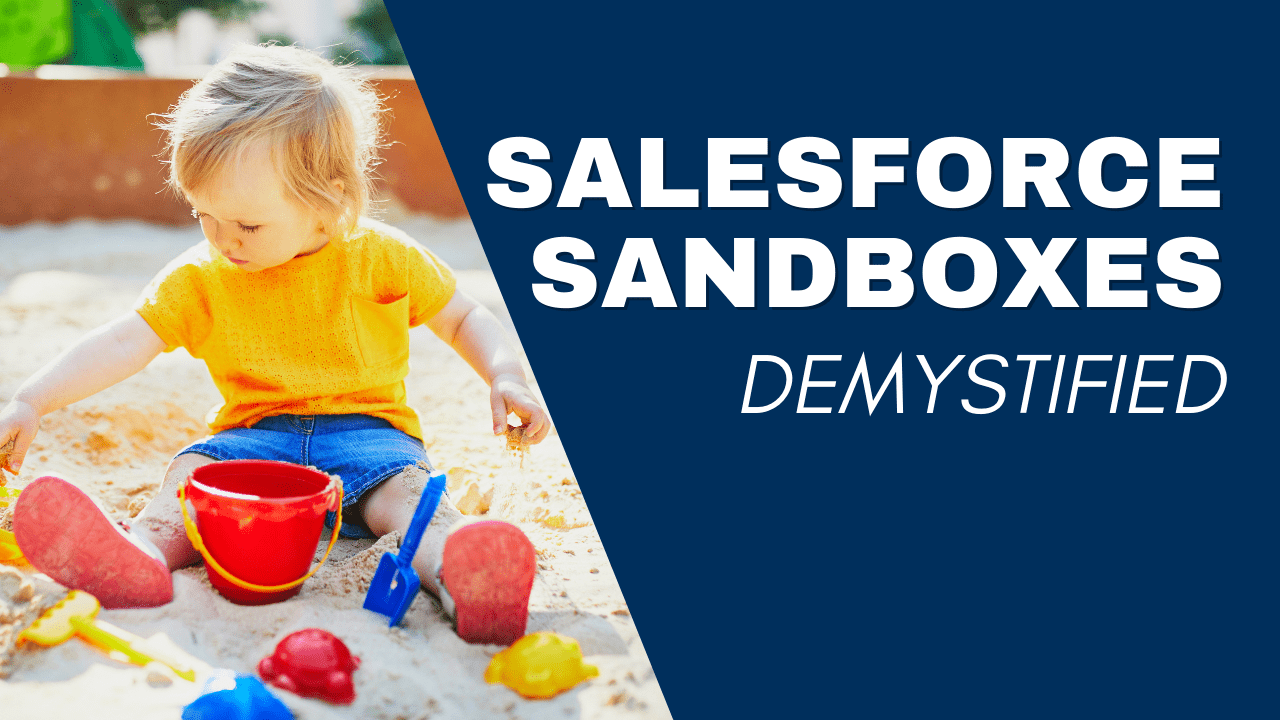What Are Problem-Solving Skills, and Why Are They Important for Salesforce Admins?

Introduction
As a Salesforce Admin, problem-solving skills are essential for keeping your organization’s Salesforce platform running smoothly. With increasing complexity and a fast-changing digital landscape, it’s essential to have the ability to effectively identify, analyze, and resolve any challenges that may arise. Developing these problem-solving skills is vital to advancing your career and ensuring you’re always on top of the latest trends and features.
Making sure you have good problem-solving skills starts with understanding the different steps involved in the process. This includes quickly recognizing potential issues or challenges, brainstorming potential solutions, evaluating each one carefully, and selecting the right option based on available resources. Having strong analytical skills will also help you make informed decisions when addressing any issues that may arise. Also, strong communication skills will help you effectively explain problems to other stakeholders while staying organized as you work toward a resolution.
To develop your problem-solving skills further, consider seeking opportunities to practice identifying potential challenges before they become serious concerns. This could include researching industry trends or reading up on new Salesforce features your team may want to use or adapt in their workflow.
Keeping up with best practices in the industry can also ensure that any challenges are addressed quickly and efficiently using the most advanced tools available. Finally, stay open-minded when exploring new ideas or strategies that could lead to better outcomes when tackling challenging problems – this can expand your capabilities as a professional even further!
The Importance of Problem-Solving Skills for Salesforce Admins
Salesforce Admins are crucial in keeping companies organized and running smoothly, ensuring their systems are optimized for success. With a knack for problem-solving, these professionals can identify solutions quickly and confidently take decisive action.
They have the technical knowledge, skills, and experience needed to customize Salesforce platforms to fit the specific needs of each business, allowing them to maximize productivity while simultaneously reducing operational costs.
They understand that their company’s success depends on the operational efficiency of their Salesforce platform and are committed to providing customer satisfaction.
As tech-savvy experts with an eye for detail, they know when system changes must be made to keep operations running at peak performance – making them invaluable assets to any organization!
Here are some reasons why problem-solving skills are essential for Salesforce Admins:
Improve Efficiency
Problem-solving skills are essential for Salesforce Admins to quickly and accurately identify and solve problems that arise while managing a Salesforce environment. By locating and fixing issues rapidly, Admins can ensure better performance and uptime of the system. This reduces customer service response times and improves overall efficiency.
Increase Productivity
Assessing an issue quickly, coming up with appropriate solutions, and carrying out those solutions efficiently is critical for increasing productivity within a Salesforce environment. With problem-solving skills, Admins can identify areas in the system that could be improved upon or automated to make them more efficient and productive.
Enhance User Experience
Having problem-solving skills is beneficial for providing users a better experience when using Salesforce systems. Admins can troubleshoot problems quickly and accurately, so users can get on with their business without waiting for slow responses from customer service teams or complex fixes from IT departments.
Streamline Troubleshooting
Knowing how to troubleshoot issues within a Salesforce environment helps reduce downtime and minimizes customer frustration when problems occur. By quickly identifying an issue’s cause, Admins can streamline the process of resolving it, so customers don’t have to wait long periods before getting back online.
Make Better Decisions
Problem-solving skills also help Salesforce Admins make more informed decisions about their systems by considering different scenarios and possible outcomes before choosing a course of action. This helps ensure they make the best decision possible to keep their environments running smoothly while minimizing risk or disruption as much as possible.
🔥 SUBSCRIBE! 🔥

Get practical Salesforce advice in your inbox!
Feeling overwhelmed by everything you have to do as a Salesforce Admin?
I know how it feels.
I created the FREE Brainiate Newsletter – to help you stay up-to-date with the latest Salesforce news, advice, and product recommendations.
Sign up for my newsletter and get all that information right in your inbox – without having to search for it yourself. You’ll be able to focus on your projects with peace of mind, knowing you’re always up-to-date on the latest Salesforce updates.
Click the button below and sign up for my FREE Brainiate Newsletter today!

Developing Problem-Solving Skills
Problem-solving is an essential capability for Salesforce Admins, allowing them to tackle complex challenges confidently. This skill helps them make better decisions, develop processes, and find solutions faster. Good problem-solving skills are invaluable in today’s competitive marketplace; they can help an Admin stand out by providing innovative solutions and helping their organization remain ahead of the curve.
Problem-solving skills enable an Admin to think critically and apply creative thinking to develop new ideas or approaches when resolving issues. They can identify common patterns and draw on past experiences and relevant research to develop effective strategies for tackling a problem. It also involves analyzing data, understanding customer needs, and working collaboratively with other team members to find the best solution.
By honing their problem-solving skills, Admins can become more productive and efficient in their day-to-day tasks. They will gain greater insight into how the salesforce works and be in a better position to identify opportunities for improvement or areas that need attention. Problem-solving also provides a valuable experience that can be applied across all aspects of work, from customer service calls to strategic planning initiatives. Ultimately, this increases the value of an Admin’s role and personal growth potential over time.
Here are some tips on how Salesforce Admins can develop their problem-solving skills:
DOWNLOAD THE CHECKLIST!

Free checklist: How to Move up in your Salesforce career
If you’re looking for a Salesforce job, trying to improve your career and boost your income, you’ll want to download this checklist!
With easy-to-follow and practical advice, this checklist will give you the roadmap to follow to position your Salesforce career for success!
Practice, Practice, Practice
Problem-solving is an essential skill for any Salesforce Admin to have. The more you practice it, the better your problem-solving skills will become!
Here are some tips to get you started:
- Break down complex problems into smaller, more manageable parts. This way, you can work through each part systematically and develop a strong foundation for problem-solving in the future.
- Develop your critical thinking skills. Consider the options available to you and which makes the most sense given the situation. Learn to ask questions to help you diagnose and solve problems more efficiently.
- Use data and analytics to inform your decisions. Many times, actual numbers can help figure out what’s causing a problem or where it’s located.
- Utilize online resources like tutorials, webinars, and forums to stay up-to-date with new development tools or common salesforce issues so that you can have informed solutions ready when needed.
- Regularly practice problem-solving by taking on challenges or completing puzzles related to Salesforce Administration or development tasks. This will help keep you sharp and give you a better idea of what types of problems you can expect in the workplace.
Collaborate With Others
Collaborating with others is an essential part of finding solutions to challenging problems. By combining many people’s talents, ideas, and experiences, you can develop solutions that may otherwise be difficult or impossible to develop alone.
These collaborations result in innovative results, as new perspectives and unique skills bring richness and complexity to problem-solving that could not arise from one person. Working together also creates an environment where everyone can learn from each other, making the entire process more efficient and enjoyable.
Collaboration often leads to far better outcomes than if one person had attempted to solve the problem independently.
Here are some advantages of collaborating when solving problems:
- Collecting multiple points of view can expose problems or areas for improvement you may not have noticed before.
- Interacting with different people can help you learn new strategies, techniques, and approaches to the issue.
- Combining ideas from diverse individuals can ensure that all potential solutions are considered, resulting in better decision-making processes.
- Discussions about the problem can increase understanding for everyone involved, allowing for more transparent communication and faster problem resolution.
Collaboration is essential for effective problem-solving because it encourages teamwork, critical thinking, unbiased input from multiple sources, and open stakeholder communication. It also allows everyone involved to learn from each other’s insights and experiences, leading to better decisions and outcomes. Through collaboration, teams are better equipped to handle complex issues that require multiple perspectives or expertise.
Continuously Learn
As Salesforce Admins, it’s essential to stay ahead of the competition and be knowledgeable about the latest advancements in the industry. By continuously learning and honing your problem-solving abilities, you can stay in touch with the most up-to-date trends and techniques essential for success.
Beyond reading technical tutorials, engaging in hands-on training or attending workshops can help you better understand how to use Salesforce tools for maximum efficiency. Using this knowledge, Salesforce Admins gain a competitive edge through their expertise and have the opportunity to create innovative solutions that will benefit their organization.
There are several ways Admins can stay informed and hone their skills. Here are just a few examples:
- Attending relevant webinars or online courses
- Participating in conferences and summits related to Salesforce
- Utilizing resources such as blogs, white papers, and books written by experts in the field
- Watching instructional videos and tutorials on various topics related to Salesforce
- Joining discussion forums or communities with peers who are also interested in learning more about Salesforce
- Reading online industry publications to keep up with the latest news and updates.
These activities can help Admins develop new problem-solving strategies and deepen their understanding of Salesforce tools, processes, protocols, etc. As they gain more experience with Salesforce systems, they will be better equipped to tackle any problems that come their way.
Adopt a Positive Attitude
Adopting a positive attitude doesn’t just lead to better problem-solving; it can profoundly affect the quality of your life. When you approach challenges with an open, learning-oriented mindset, you gain the confidence to overcome new obstacles and discover new solutions. Your success in these situations increases, as does your ability to think outside the box and remain resilient even when faced with complex tasks.
You can unlock your potential by adopting a positive attitude towards problem-solving — from discovering innovative solutions to gaining more confidence in your abilities. When difficulties arise, instead of getting overwhelmed or frustrated, using positive thinking and looking at these problems as opportunities for growth can help you stay motivated and energized. This will enable you to overcome any challenge without being held back by negative emotions or preconceived notions.
A positive attitude also helps develop mental agility and creative thinking skills — two critical ingredients of successful problem-solving that come in handy in every aspect of our lives. With such an empowering mindset, not only will you be able to tackle issues more effectively, but you’ll also be able to look at mistakes as learning experiences and use them as tools for improvement.
Here are some tips for adopting a positive attitude when problem-solving:
- Focus on the process rather than the outcome
- Acknowledge problems without catastrophizing
- Don’t be afraid to take risks and experiment with new approaches
- Reframe failures as learning opportunities
- Take advantage of helpful resources like tutorials or mentorships
- Celebrate small wins along the way
Practical Tips for Using Problem-Solving Skills Effectively
Define the Problem
Problem-solving is an essential skill, and it’s important to take the time to define the problem before jumping in. By defining the issue, you can pinpoint the underlying cause of the problem, identify who will be impacted if the issue isn’t resolved, and understand how serious it could be.
When properly analyzing a problem, you may even discover further to define and analyze it clearly with a solution that tackles all of them. Defining and analyzing a problem clearly can save time and effort and help ensure effective solutions.
Here are some steps to take when defining a problem:
- Consider what is causing the issue and why it is occurring. This can help you pinpoint where intervention needs to be targeted.
- Establish what type of problem you’re dealing with – whether operational, financial, or personnel related.
- Think about how different stakeholders may be affected by the issue and consider their unique perspectives on it.
- Research any data or information related to this particular issue that can help inform your understanding of what needs to be done to solve it.
- Assess the bigger picture – consider how this problem fits into larger objectives or goals that must be achieved for success.
Develop a Plan
Once you’ve identified the problem and set a goal, developing a plan is essential to help you achieve those results. To do that, get clear on what actions need to be taken, who needs to take them, and when they need to be done.
Make sure your plan is realistic and attainable. Set deadlines and checkpoints along the way so you can track your progress. When crafting your plan, consider any potential roadblocks or challenges that may arise, so if they happen, you’re prepared with strategies to work around them. Doing this research upfront can help you stay motivated and on track toward reaching your goal.
Here are some tips to keep in mind when developing your plan:
- Determine a practical approach: Think about how you could address the problem. Research any available resources and weigh the pros and cons of each approach before making a decision.
- Outline required steps: Break down your plan into smaller, more manageable steps so that you can keep track of progress. Make sure that each step is necessary and relevant to reaching your goal.
- Identify risks or roadblocks: As part of your planning process, anticipate potential risks or roadblocks that could slow down your progress. Evaluate potential solutions for overcoming them.
A comprehensive plan can help reduce uncertainty and increase confidence in approaching the problem-solving process. Taking the time to map out a detailed plan can be essential in helping you identify the best approach and reach successful outcomes.
Communicate Effectively
- Establish clear communication protocols and expectations with all stakeholders before beginning any problem-solving process.
- Provide frequent updates to inform everyone of progress, challenges, and plan changes.
- When discussing a problem or solution, use language understandable by all parties involved to ensure clarity.
- Ask questions and check for understanding throughout the process, which will help avoid miscommunication.
- Balance your conversations between listening and talking — take time to understand others’ points of view before responding.
- Use nonverbal cues such as body language and eye contact when speaking with others to understand their perspective better and convey your thoughts.
- Be mindful of the tone of voice, as it can affect how someone perceives a message.
- Take care when sharing sensitive information, such as confidential or proprietary information, as it could compromise the integrity of the problem-solving effort.
Evaluate Your Results
Evaluating your solution’s success is critical for achieving your desired outcome. Taking the time to analyze the results of your implementation will help you identify any areas that need further improvement and give you insight into what is working well. By assessing your results, you can ensure that your changes have a positive effect and help you reach your goals.
To evaluate your results, look for specific metrics or indicators that give evidence of success. Consider measurable customer satisfaction, cost savings, or increased revenue. Ask questions like:
- Did my solution positively impact customer experience?
- Has there been an improvement in the efficiency of the process?
- Are there areas where I can increase profitability?
Once you have identified areas performing better than expected, don’t forget to recognize them. Celebrate these successes and share them with colleagues and stakeholders so they can understand how beneficial the changes were. Similarly, if something isn’t working as planned, identify opportunities for improvement and consider different solutions that may be more effective.
By taking the time to assess and evaluate your results thoroughly, you’ll develop a better understanding of what works best and communicate its value more effectively with others.
Here are some practical steps for evaluating your results:
- Measure your success against the goals set when deciding on a solution. Was the solution able to meet or exceed those goals?
- Analyze how each aspect of the problem was addressed. Were all areas appropriately resolved, or could something have been done better?
- Compare your results to similar solutions used in the past. What worked well, and what could be improved upon?
- Talk to stakeholders about their opinion on how successful the solution was. Were they happy with the outcome, or do they think something else could have been done?
- Monitor changes over time and adjust as needed based on feedback from stakeholders and what you observe yourself.
By taking the time to evaluate the effectiveness of your solution, you can ensure that it is achieving its intended purpose and identify any necessary adjustments or improvements. Additionally, understanding how a particular problem was solved will help you develop new strategies for tackling future problems more effectively.
Learn From Your Mistakes
Mistakes are an inevitable part of the process when it comes to problem-solving. But while these missteps can be discouraging, they also present a valuable opportunity to learn and grow as a problem-solver. Taking the time to reflect on our mistakes helps us gain insights into how we can improve our skills and better handle future struggles.
It’s important to remember that failure isn’t the end; it’s only a stepping stone to further success. We can identify patterns and form strategies for tackling challenging problems by studying our errors in detail. We can also discover what motivates us to continue striving for excellence even in the face of adversity.
Moreover, developing creativity and resilience is critical when it comes to problem-solving. Creative minds are adept at out-of-the-box thinking, while resilient individuals can pick themselves up after a failure and keep pushing forward with vigor. Combined with these two qualities, we can discover unique solutions that may otherwise have gone unnoticed — or that could offer much-needed inspiration when facing the toughest challenges.
Learning from our mistakes is crucial if we want to increase our chances of success in problem-solving — so don’t be afraid to make them! With a bit of reflection and dedication, you’ll soon find yourself ready to tackle any obstacle that comes your way with poise and confidence!
Here are a few tips for making the most of your mistakes:
- Analyze what went wrong: Take some time to think back over the problem and consider what you could have done differently or better. Try to examine the situation without judgment or blame.
- Prioritize taking action: Rather than dwelling on the mistake, focus on what actions you can take to remedy or prevent future problems. Taking positive steps forward helps you move past mistakes more quickly and efficiently.
- Seek out help: If needed, don’t hesitate to ask for help from others with more experience or hindsight to gain insight and look at the situation from different angles. Learning from mistakes made by others can also be a helpful way of improving your skillset.
- Persevere: With each mistake comes an opportunity for growth and progress; don’t give up after one mistake! Keep pushing forward, determining new strategies and solutions designed to avoid similar issues down the line.
FAQs
Q: What Are the Critical Problem-Solving Skills for Salesforce Admins?
Some essential problem-solving skills for Salesforce Admins include critical thinking, creativity, collaboration, adaptability, and communication.
Q: How Can I Improve My Problem-Solving Skills?
You can improve your problem-solving skills by practicing regularly, collaborating with others, continuously learning, and adopting a positive attitude.
Q: What Are Some Common Challenges That Salesforce Admins Face?
Salesforce Admins’ common challenges include managing complex data structures, ensuring data accuracy, customizing the platform to meet specific needs, and keeping up with emerging trends and technologies.
Q: How Can Practical Problem-Solving Skills Drive Business Success?
Practical problem-solving skills enable Salesforce Admins to identify and resolve issues that may impede business success, enhance efficiency, promote innovation, and improve customer satisfaction.
Q: Can Problem-Solving Skills Be Learned or Developed Over Time?
Yes, problem-solving skills can be learned and developed over time. While some individuals may naturally possess strong problem-solving skills, consistent practice, collaboration, and continuous learning can help enhance and refine these skills.
Conclusion
As Salesforce Admins, we need to possess and hone our problem-solving abilities to stay ahead of the competition. We become more agile and equipped to tackle challenges by continually learning and sharpening our skills. Strengthening our problem-solving skills enables us to deliver exceptional solutions, drive business success, and promote innovation.
The key is to remain open-minded and maintain a positive attitude while collaborating with others. This will help us find unique perspectives and create creative solutions that can genuinely make an impact. Moreover, this approach lets us stay up-to-date with the latest technologies and trends to refine our craft further.
It all comes down to continuing learning and investing in ourselves. Doing so can increase our confidence when dealing with complex tasks and propel us toward success as Salesforce Admins!






